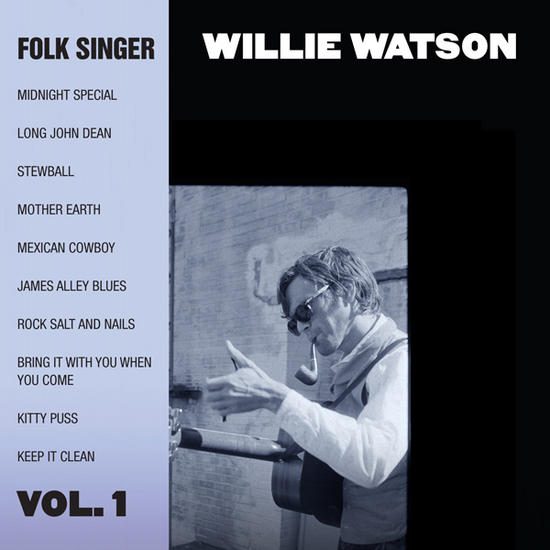
Willie Watson travels light these days. After well over a decade with Old Crow Medicine Show — eight albums, a consistently dizzying domestic and international tour schedule, and a reputation as one of the most respected bands within the realm of modern Americana — he showed up to the Ark a few weeks ago with only the hat on his head and a banjo and guitar in tow. As pared-down as his stage presence is, Watson’s first solo album, Folk Singer Vol. 1, released last month. Produced by David Rawlings, the album contains no original material, but rather Watson’s interpretations of traditional folk and blues standards. It gives the distinct impression of a man attempting to simplify his life.
In the music world, bands break up. As a music fan, you get used to the constant cast changes, the break ups, and “indefinite hiatus,” whatever that’s supposed to mean. Willie has mostly avoided discussing his split with Old Crow until a recent interview in which he admitted, amongst the usual reasons of too much time on the road and new parenthood, that he didn’t necessarily approve of the direction in which the band was headed. I’ve been a music fan long enough to know that bands split up often, so honestly I wasn’t too surprised by the news that Willie had quit the band. But, then again, somehow I was. Old Crow had always seemed like a brotherhood to me. Having seen them live multiple times, their musicianship and bond seemed indestructibly tight, yet loose with the comfortability of friendship. However, even as a longtime fan, I admit that 2012’s Carry Me Back left me a bit confused. Their usual high energy seemed to be replaced by a forced and watered down version of themselves. The album seemed rife with stock images and songs leaning toward country anthems rather than the old timey music with modernity that marked their early work.
I’d like to think I’m never one to deny a band’s efforts to evolve, but for those of you who have been experiencing a high harmony deficiency and long for the type of sound that made Old Crow great in the first place, Folk Singer will feel like a homecoming. For Willie Watson, I imagine it’s an attempt to reclaim what he feels he’s lost.

In keeping with another major tradition of American folk music, the folk hero, “Long John Dean” and “Mexican Cowboy” (formerly “The Hills of Mexico”) are banjo picking rides through the stories of the larger-than-life outlaws and cowboys that have characterized American traditionals through the decades, and continue to morph and change through young musicians like Watson. Rounding out these staples are two more topics that no good folk album can ignore: the lewd and the forlorn. His rendition of Utah Philip’s “Rock Salt and Nails” is a perfect blend of the lost love and revenge that mark the original and, in my opinion, stands out as a track that perfectly captures Willie’s signature tenor. At one point during the show, Willie asked the audience if they wanted to hear something sweet or something dirty. Unanimously, the answer was the latter and Watson performed the album’s closing number “Keep It Clean,” a winking, lusty Charley Jordan number that is anything but.
If you’re anything like me, you will love that Folk Singer is exactly what it sets out to be. I love that each track is a veritable homework assignment, weaving through decades of American blues and traditionals, triggering that constant dig back into musical history that seems part and parcel to being an Americana music fan. I was lucky enough to chat with Watson a bit after the show. He seemed excited to be back out on the road on his own terms and, in chatting about working with Dave Rawlings on the record, he simply responded with a grin and said, “we think alike.”
When the news about Old Crow came across the wire, I was never too worried for Watson. His voice and talent have easily been two of my favorite things for almost a decade. And now, adding to that, we walked away from each other the other night with a smile and a “see you soon,” as well as the knowledge that Folk Singer is, in fact, only Volume 1.



